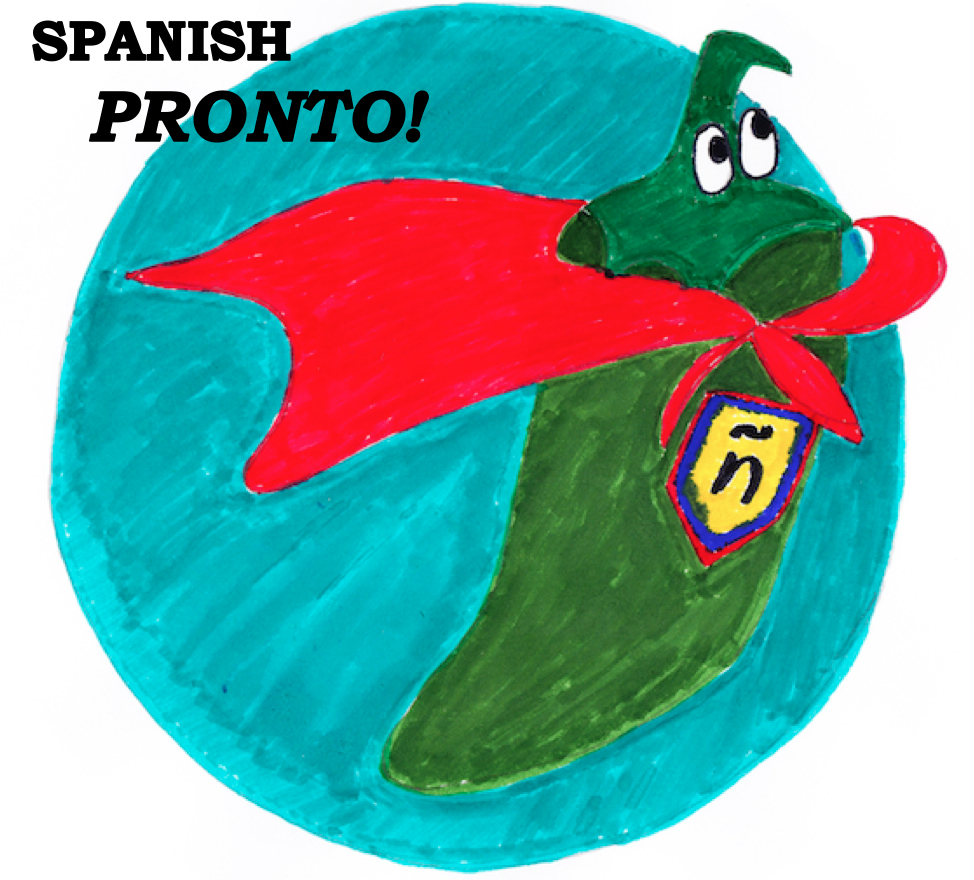
Spanish Vocabulary
Learn 10 Spanish words per day and know 2,500 words after one year!Many words in Spanish and English are similar, but similar words can have very different meanings, so be careful.
por for (via, through, in exchange for, per) [i.e., means]; around; through; alongpara for (towards, for the purpose of, in order to) [i.e., ends]
su his, her, your(formal), their [one possessed object]
sus his, her, your(formal), their [two or more possessed objects]
es he is, she is, it is, you(formal) are
son they are, you all(formal) are
ser to be [essence], being [essence]
está he is, she is, it is, you(formal) are
están they are, you all(formal) are
estar to be [stage], being [stage]
Words pronunciation: 0:18 (18s)
'Por' and 'para' are often translatable into English as 'for,' but 'por' is used to express reasons, exchanges, and 'during,' 'through,' or 'by means of' [i.e., means or methods], and 'para' is used to express end-states, goals, purposes, and direction [i.e., ends or destinations]. 'Por' is the journey, and 'para' (maybe because it is a little longer) is the destination.
'Ser' (es, son, etc.) describes how something or someone inherently 'is'—its essence, its defining characteristics:
el profesor es aburrido the professor is boring (it is just 'how he is')es difícil it is difficult (it is an inherently difficult thing)
el cielo es azul the sky is blue (blue is the normal color of the sky)
¿Ser o no ser?, la pregunta es esta. To be, or not to be, that is the question. [usual formulation: Ser o no ser, esa es la cuestión.]
ser humano human being
los seres humanos human beings
Examples pronunciation: 0:39 (39s)
'Estar' (está, están, etc.) describes how something or someone 'is' at a given moment. You can often think of it as a stage the subject is going through at a particular time (or place):
el profesor está aburrido the professor is bored (it is how he is at the moment)está difícil it is difficult (it is difficult right now)
los cielos están nublados the skies are cloudy (the skies are currently cloudy)
¿Está Luisa? Is Luisa (here [or there])?
No, no está. No, she is not (here [or there]).
her dog su perro
her dogs sus perros
© 2017-2108 Chris Marquardt, Spanish Pronto
http://www.spanishpronto.com/vocabulary_0001.html
http://www.spanishpronto.com/vocabulary_0002.html
http://www.spanishpronto.com/vocabulary_0003.html
http://www.spanishpronto.com/vocabulary_0004.html
http://www.spanishpronto.com/vocabulary_0005.html
http://www.spanishpronto.com/vocabulary_0006.html
http://www.spanishpronto.com/vocabulary_0007.html
http://www.spanishpronto.com/vocabulary_0008.html
http://www.spanishpronto.com/vocabulary_0009.html
http://www.spanishpronto.com/vocabulary_0010.html
http://www.spanishpronto.com/vocabulary_0011.html
http://www.spanishpronto.com/vocabulary_0012.html
http://www.spanishpronto.com/vocabulary_0013.html
http://www.spanishpronto.com/vocabulary_0014.html
http://www.spanishpronto.com/vocabulary_0015.html
http://www.spanishpronto.com/vocabulary_0016.html
http://www.spanishpronto.com/vocabulary_0017.html
http://www.spanishpronto.com/vocabulary_0018.html
http://www.spanishpronto.com/vocabulary_0019.html
http://www.spanishpronto.com/vocabulary_0020.html
http://www.spanishpronto.com/vocabulary_0021.html
http://www.spanishpronto.com/vocabulary_0022.html
http://www.spanishpronto.com/vocabulary_0023.html
http://www.spanishpronto.com/vocabulary_0024.html
http://www.spanishpronto.com/vocabulary_0025.html
http://www.spanishpronto.com/vocabulary_0026.html
http://www.spanishpronto.com/vocabulary_0027.html
http://www.spanishpronto.com/vocabulary_0028.html
http://www.spanishpronto.com/vocabulary_0029.html
http://www.spanishpronto.com/vocabulary_0030.html
http://www.spanishpronto.com/vocabulary_0031.html
http://www.spanishpronto.com/vocabulary_0032.html
http://www.spanishpronto.com/vocabulary_0033.html
http://www.spanishpronto.com/vocabulary_0034.html
http://www.spanishpronto.com/vocabulary_0035.html
http://www.spanishpronto.com/vocabulary_0036.html
http://www.spanishpronto.com/vocabulary_0037.html
http://www.spanishpronto.com/vocabulary_0038.html
http://www.spanishpronto.com/vocabulary_0039.html
URL for this page: http://www.spanishpronto.com/vocabulary_0003.html